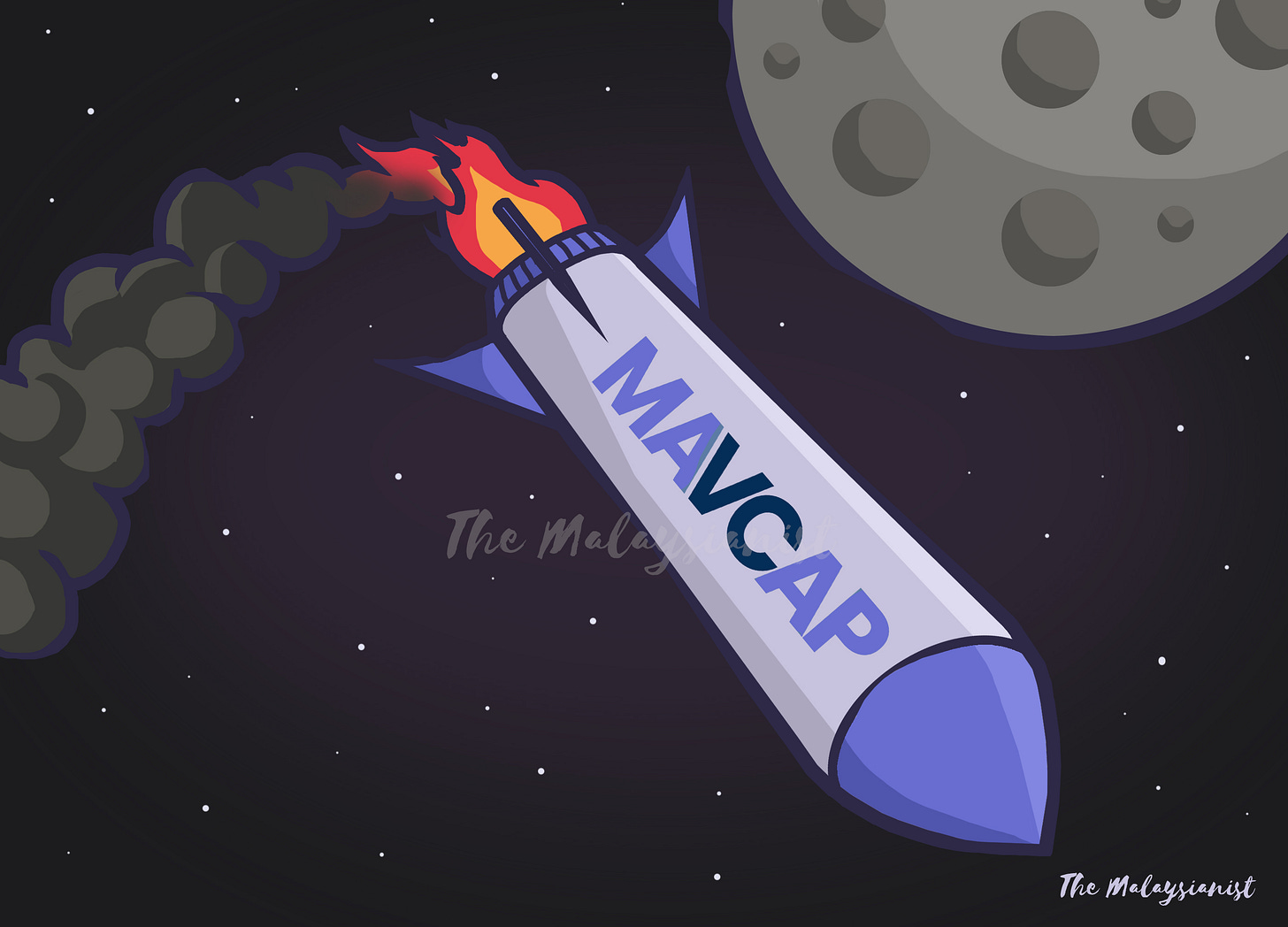The great Mavcap misfire
Millions went out but little returned.
Yes, it’s a Sunday. But running my own show means there’s no break for the wicked.
Longtime readers of The Malaysianist will know I keep a close eye on the venture capital space because it’s something I’ve tracked closely from years spent covering that corner of the economy.
You could say today’s piece is a spicier follow-up to the May 12 newsletter questioning government-owned Mavcap’s role in building Malaysia’s startup scene.
In that brief, I raised the difficulty of getting reliable data, beyond what little is found in its audited reports.
Until now.
Mavcap (or Malaysia Venture Capital Management Bhd) is currently one half of Jelawang Capital, which is under the purview of sovereign wealth fund Khazanah Nasional.
While Jelawang is running its own programmes, it still has to shoulder Mavcap’s legacy, from staff to investments to beneficiaries.
Today’s edition unpacks the funds Mavcap backed from 2001 to 2021, across Malaysia Plans 8 to 11.
That includes two outsourced partners programmes and three batches of fund investments.
The data comes from an internal document detailing fund performance up to Q3 2023.
I reached out to Jelawang repeatedly for comments. No replies came my way. But a few staff did check out my LinkedIn profile.
Jokes aside, I’ve done my best to verify the document’s data points before publishing.
I also reached out to most of the fund managers for updates and comments. My line of questioning was around their fund performance and problems apparent in the report.
And I shot my shot by asking for updated data on allocations received by Mavcap as well as management fees.
Almost all turned me down, citing confidentiality. But some did take the extra step to clarify wherever they could.
Let’s start with this: Mavcap deployed RM620 million across various fund managers. But by Q3 2023, it had only received RM234.5 million back.
That means for every ringgit it committed to these programmes, just 38 sen made its way home.
You’re reading a paid version of The Malaysianist, a newsletter on money and power by writer and journalist Emmanuel Samarathisa.
I run monthly and annual subscriptions. There’s also the atas or founding member tier where you get all the perks of an annual subscription and more, such as an annual or founder’s report and insight into how this little corner of the internet fared throughout the year.
Group subscriptions are on the table, if you’re mulling over purchases for your organisation or for family members.
There are several ways to measure returns in venture capital, but for this newsletter, I’m using distributions to paid-in capital (DPI), a metric that reflects the actual cash returned to investors.


